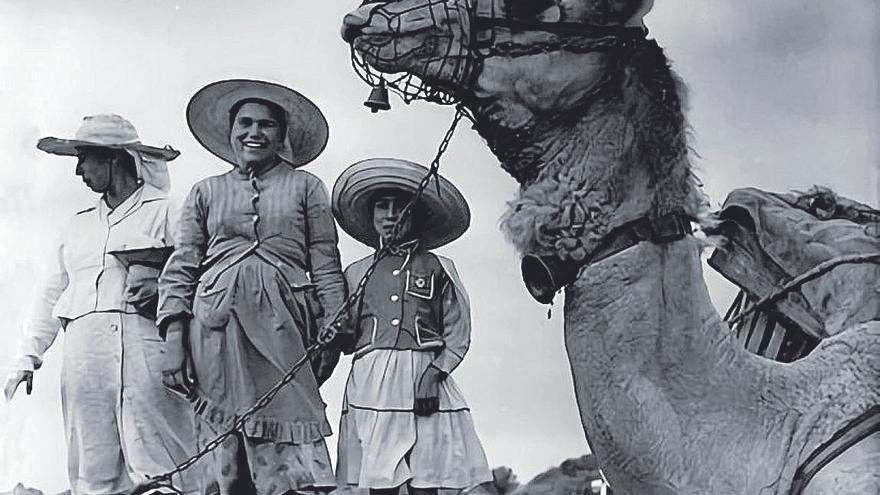
The story is told of Tejina, a village on the island of Tenerife, where there once lived a strong woman named Nicolasa, who was brave, honest, lively, agile, strong, generous, and above all, adventurous. Before becoming a woman, still a girl, she lived with her mother, her brother Jonás, and her camel Ambrosia.
Times were hard for families in the village, as they relied on agriculture and livestock, and not all households had the same opportunities to own land or animals. Moreover, sometimes storms would come and destroy the fields, so families had to help each other to get by.
Juana, Nicolasa’s mother, was one of those brave mothers who taught their children to grow up with values like respect, equality, and generosity, and to share them every day with their family and the village. This is how young Nicolasa learned to shape herself as a person, valuing and respecting her surroundings and her neighbours.
One summer day, taking advantage of the long day, Juana told Nicolasa that she had to cross half the island through the mountains with her camel Ambrosia to exchange potatoes for flour so they could feed the families in the village. Nicolasa loaded Ambrosia with the harvest potatoes and set off from Tejina to complete her task.
The girl sang typical Canarian songs along the way, she sang to her camel, to the landscape, and to the people, and time flew by.
Once she reached the mountains, Nicolasa found a natural water source and she and Ambrosia drank and took a break in the shade of the pine trees; it was noon and they needed to make it to the flour mill on time to exchange the potatoes from the harvest, as her mother had instructed.
After resting, Nicolasa and Ambrosia descended the mountain to the mill, where they met the miller who handed them the flour in exchange for the potatoes, and also put Nicolasa in a predicament by proposing that she leave the camel in exchange for flour for two years. The miller needed a means of transport to sell his flour, but Nicolasa, despite her young age, knew that her family and the village needed to eat. It was a difficult decision, and she didn’t have her mother to ask for advice, but she realized she did have one thing: Juana’s teachings of values every day. So, she looked Ambrosia in the eyes and, following the principles her mother had taught her, she told the miller that she was sorry, but Ambrosia was a part of her family and she couldn’t exchange her for anything, as Ambrosia’s value was her companionship and respect as an animal. The miller understood that Nicolasa was a girl of her word and thanked her for leaving him with a lesson: to care for animals as part of the family.
That day, Nicolasa learned she could make a decision based on her mother’s advice when she was alone, and that, despite being a girl, she could impart those values to other people even if they were adults.
[–>
Proud of herself and her family, she began the journey back to Tejina where she shared the flour with the village and told her mother Juana what had happened at the mill. Her mother, smiling, embraced her and thanked her for following her teachings.
Subscribe to continue reading
















